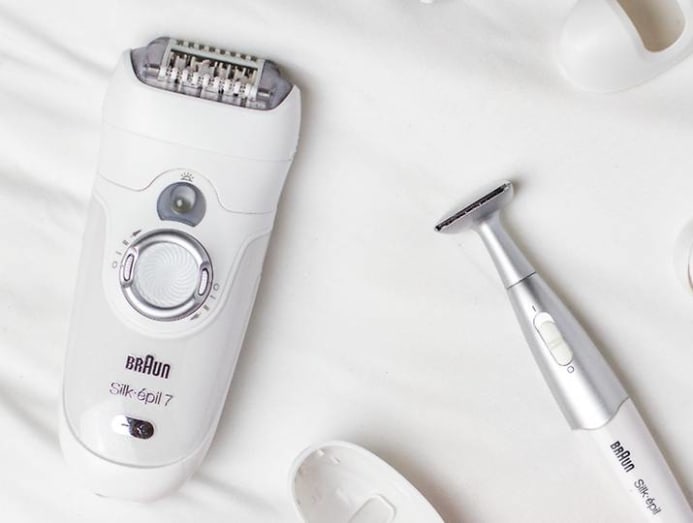Does Hair Really Grow Back Thicker When You Shave
Here's one of those pieces of beauty advice that gets passed along from woman to woman, and faithfully heeded by many who want to maintain the feel of smooth, fuzz-free arms and legs for as long as possible.
Applying a razor to body hair, it seems, is deemed to be a big no-no when it comes to methods of hair removal. While shaving is a lot quicker, easier and cheaper to accomplish than, say, using an epilator or going for laser treatments, it's been said to cause hair to grow back thicker and faster.
If you've actually noted that hair regrowth following shaving feels thicker than it used to be, you are not entirely wrong – it's true that hair regrowth will "feel" thicker post-shaving.
But is it, in fact, thicker than it was previously? Apparently not.
Ask any dermatologist, and he or she will tell you that shaving doesn't change the thickness of hair – your genes determine how fine or thick it is (here, we mean the actual width of each hair strand; not thickness in relation to the amount of hair you have).
What about speed – does hair grow back faster following a shave? It may be true, only if you compare regrowth from shaving in contrast to that from waxing, but not in terms of the actual rate of hair growth.
On that note, some people even believe that shaving may stimulate hair growth, quantitatively speaking (which can be desirable if we are talking about hair on the head, of course). But logic will tell you that this is a complete myth, because if it were true, hair loss woes wouldn't even exist.
READ: 5 grooming hacks for guys: Elvin Ng's makeup artist on receding hairlines and more
So what exactly is true or false? Here's what you need to know to separate the facts from the old wives' tales.
WHY SHAVING MAKES HAIR FEEL 'THICKER'
When you run a razor across the hair shaft, it removes the hair above the surface of the skin, while the remainder of the hair is still underneath the skin. Cutting the hair with a blade creates a straight, blunt tip, which will feel "thick" or coarse for a short while as it emerges through the skin. If, however, it is allowed to grow further, the tip will then naturally taper and become "softer", while the entire hair remains the exact thickness it has always been.
READ: How guys can deal with receding hairlines: The best hairstyles to stay handsome
WAXING VERSUS SHAVING

If you've ever been told that waxing or epilation is a better hair removal method than shaving, it can be true, if it's said in the context of hair regrowth, as opposed to other factors like convenience or cost.
With waxing or epilation, the hair is pulled out at the root, which means the tip grows out "thinner", since it doesn't have the blunt end of hair that is shaven. In other words, you might be able to extend the time between hair-removal sessions, since the regrowth won't feel as stubbly or "obvious" as that from shaving.
At the same time, it is in fact true that with waxing and epilation, the regrowth will take a longer time to emerge in comparison with that from shaving. The explanation? Shaving leaves part of the hair intact underneath the skin, "waiting" to emerge from it soon, while plucking out the hair removes it entirely.
READ: Ladies, here's a 10-step guide to shaving your legs without getting nicks or razor burn
SHAVING FACIAL HAIR
For (most) guys, shaving is a daily affair and has different implications. But one thing that's no different here, however, is that many men, too, believe that shaving can make their hair grow thicker and faster, and thus help them grow a fuller moustache or beard – for the record, that is not true.
The same aforementioned scientific reasoning behind such mistaken thinking applies here – there's no difference whether you are male or female, or whether the hair in question is on the face, body or head, of course. Think shaving your head will boost hair growth? You might have better luck signing up for a series of good scalp treatments instead.
What's more important for men is knowing how to reduce stubble and delay the emergence of those prickly, blunt-cut hair ends for those who tend to have a five o'clock shadow.
While shaving is the only option for men when it comes to managing their facial hair, there are techniques to help you achieve a better shave. Want to extend the time before stubble emerges from the skin's surface? It all boils down to getting the closest shave possible, or reaching as much hair as possible with your razor.
Some tips that are easy yet essential: Firstly, shaving in the shower is ideal, since the steam will open up your pores. Secondly, pre-shave products like shaving oil or cream are there for a reason – they soften your skin and hair so that the razor can reach deeper towards the hair root.
Finally, always use a sharp blade. Putting in a little more effort in your shaving ritual can significantly make regrowth more manageable, even if it won't alter its thickness or actual speed of growth.
Does Hair Really Grow Back Thicker When You Shave
Source: https://cnalifestyle.channelnewsasia.com/style-beauty/shave-or-not-shave-does-it-really-make-hair-grow-faster-or-thicker-249121
0 Response to "Does Hair Really Grow Back Thicker When You Shave"
Post a Comment